Flaviu Cipcigan
MetaGFN: Exploring Distant Modes with Adapted Metadynamics for Continuous GFlowNets
Aug 28, 2024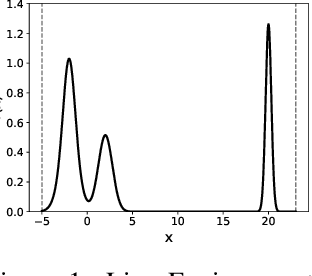
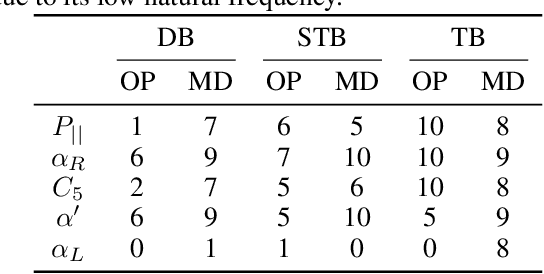
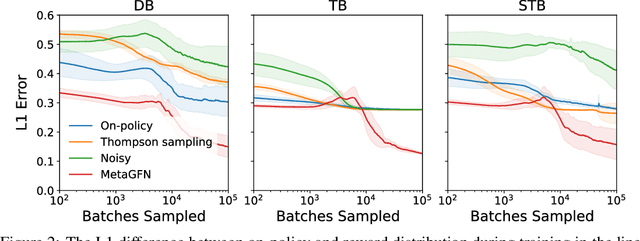
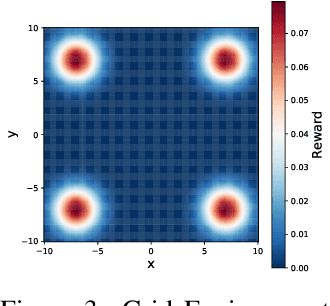
Abstract:Generative Flow Networks (GFlowNets) are a class of generative models that sample objects in proportion to a specified reward function through a learned policy. They can be trained either on-policy or off-policy, needing a balance between exploration and exploitation for fast convergence to a target distribution. While exploration strategies for discrete GFlowNets have been studied, exploration in the continuous case remains to be investigated, despite the potential for novel exploration algorithms due to the local connectedness of continuous domains. Here, we introduce Adapted Metadynamics, a variant of metadynamics that can be applied to arbitrary black-box reward functions on continuous domains. We use Adapted Metadynamics as an exploration strategy for continuous GFlowNets. We show three continuous domains where the resulting algorithm, MetaGFN, accelerates convergence to the target distribution and discovers more distant reward modes than previous off-policy exploration strategies used for GFlowNets.
Machine Guided Discovery of Novel Carbon Capture Solvents
Mar 24, 2023Abstract:The increasing importance of carbon capture technologies for deployment in remediating CO2 emissions, and thus the necessity to improve capture materials to allow scalability and efficiency, faces the challenge of materials development, which can require substantial costs and time. Machine learning offers a promising method for reducing the time and resource burdens of materials development through efficient correlation of structure-property relationships to allow down-selection and focusing on promising candidates. Towards demonstrating this, we have developed an end-to-end "discovery cycle" to select new aqueous amines compatible with the commercially viable acid gas scrubbing carbon capture. We combine a simple, rapid laboratory assay for CO2 absorption with a machine learning based molecular fingerprinting model approach. The prediction process shows 60% accuracy against experiment for both material parameters and 80% for a single parameter on an external test set. The discovery cycle determined several promising amines that were verified experimentally, and which had not been applied to carbon capture previously. In the process we have compiled a large, single-source data set for carbon capture amines and produced an open source machine learning tool for the identification of amine molecule candidates (https://github.com/IBM/Carbon-capture-fingerprint-generation).
Accelerating Antimicrobial Discovery with Controllable Deep Generative Models and Molecular Dynamics
May 22, 2020
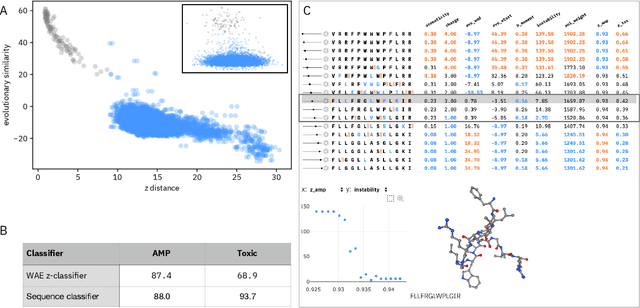
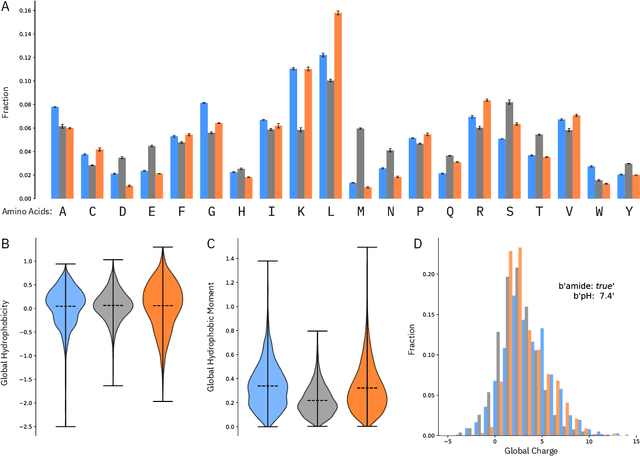
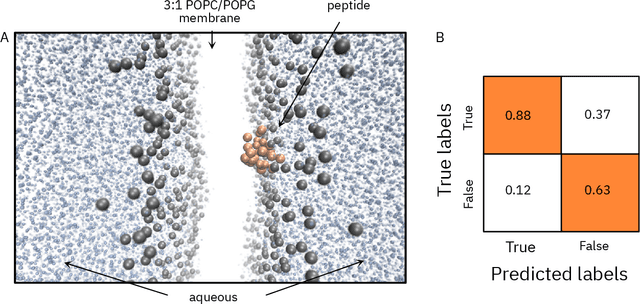
Abstract:De novo therapeutic design is challenged by a vast chemical repertoire and multiple constraints such as high broad-spectrum potency and low toxicity. We propose CLaSS (Controlled Latent attribute Space Sampling) - a novel and efficient computational method for attribute-controlled generation of molecules, which leverages guidance from classifiers trained on an informative latent space of molecules modeled using a deep generative autoencoder. We further screen the generated molecules by using a set of deep learning classifiers in conjunction with novel physicochemical features derived from high-throughput molecular simulations. The proposed approach is employed for designing non-toxic antimicrobial peptides (AMPs) with strong broad-spectrum potency, which are emerging drug candidates for tackling antibiotic resistance. Synthesis and wet lab testing of only twenty designed sequences identified two novel and minimalist AMPs with high potency against diverse Gram-positive and Gram-negative pathogens, including the hard-to-treat multidrug-resistant K. pneumoniae, as well as low in vitro and in vivo toxicity. The proposed approach thus presents a viable path for faster discovery of potent and selective broad-spectrum antimicrobials with a higher success rate than state-of-the-art methods.
 Add to Chrome
Add to Chrome Add to Firefox
Add to Firefox Add to Edge
Add to Edge